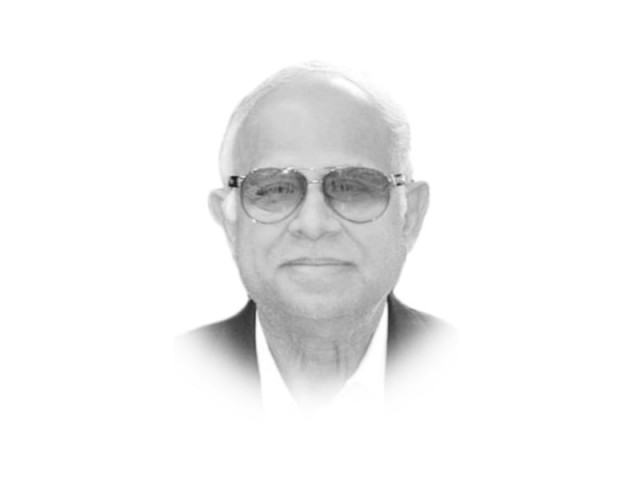Reconnecting Afghanistan
Tthe entire region stands to gain exponentially from constructive trade and commerce engagement

Economic resurgence for land-locked countries requires facilitating trade to and through their territory. The EastWest Institute (EWI), a New York-based leading US think tank, headed by Ross Perot Junior, initiated the “Abu Dhabi Process” — a cross-border trade dialogue co-funded by Abu Dhabi and Germany — between Afghanistan and the countries on its periphery. Hosted by the EWI, the recent Istanbul conference encouraged businesses in South and Central Asia to themselves take necessary initiatives to unlock trade and kick-start the war-ravaged Afghan economy.
For the short-term, the recommended ways forward included: a) a regional business council comprising influential business leaders from Afghanistan, Pakistan, India, Iran, CARs, Turkey and Iran; b) one-window custom clearance systems by Afghanistan and improved border sources at Torghundi, Hairatan, Torkham, Chaman, Wagah and Sher Khan Bandar and other border points to reduce time and cost of crossing; c) a generous visa regime to enable businesses to move around easily (under Saarc for the short-term and the Economic Cooperation Organisation for the long-term); d) regional entrepreneurship exchange programmes to promote trade and investment opportunities.
The mid-term recommendations included: a) a unified transaction mechanism system and a regional banking framework; b) standardising the Afghan tax structure to entice business investment; and c) a free trade zone Fata. The long-term recommendations were: a) a regional infrastructure trust fund, with India, Turkey, China, Russia, Pakistan and Afghanistan as donors to invest in designing, developing and expanding transport means, such as railways; and b) the implementation of CASA-1000, TAPI projects and other regional energy projects (without mention by name of the Iran-Pakistan (IP) gas pipeline). The threat of US sanctions remain, and while Pakistan has no intention of bucking that, the Iranian portion is in place at the border at two places, 70 kilometres from Gwadar and 250 kilometres to connect into the extensive Pakistani gas pipeline infrastructure, with planned connections into Fata and Swat.
Recent significant and symbolic events confirm that Ashraf Ghani is a game-changer in the context of the Pakistan-Afghanistan relationship. To quote a recent article of mine, “Throwing aside diplomatic norms, the Afghanistan’s President visited GHQ immediately after landing at Islamabad. A foreign Head of State heading straight towards a military HQ on arrival carries a lot more than ceremonial importance, the Afghan President means business because he well understands where the real power concerning national security rests. Ashraf Ghani described his discussions later with the Pakistani PM as ‘a shared vision to serve as the heart of Asia, ensuring economic integration by enhancing connectivity between South and Central Asia through energy, gas and oil pipelines becoming a reality and not remaining a dream. The narrative for the future must include the most neglected of our people to become stakeholders in a prosperous economy in stable and peaceful countries, our faiths are linked because terror knows no boundaries. We have overcome obstacles of 13 years in three days, we will not permit the past to destroy the future’.” How will the Afghan president overcome the ‘hate Pakistan’ mindset of a few Kabul diehards, some of these ingrates even born and educated in Pakistan, who must even now be conspiring to cut him down to size?
That the future would not be held hostage by the past was symbolised by the US repatriating (with Afghan consent) Latif Mehsud along with two other militant commanders from Bagram into Pakistani custody. In another one of my articles, I had said, “The capture of the senior leader of the Tehreek-e-Taliban Pakistan (TTP), Hakeemullah Mehsud’s No 2, by US Special Forces represents the ‘smoking gun’ about the Afghan regime’s sustained involvement in terrorism in Pakistan. In the company of the Afghan National Directorate of Security (NDS) agents taking their prized asset to Kabul to meet senior government officials, Latif Mehsud was simultaneously on the American ‘most wanted list’. India’s RAW is using the NDS as a proxy to sustain and support the TTP’s brutal campaign within Pakistan. To its credit, despite Karzai’s fury at the US for his capture (Daily Telegraph, October 13, 2013), this cut no ice with the US, and it signalled that as its enemy, Latif Mehsud would remain in its custody.” The act of handing over this terrorist is a confidence-building measure that will reduce the trust deficit and build on the excellent fast developing working relationship.
Realpolitik is the product of cold, calculated pragmatism based on economics. Afghanistan will make billions of dollars from system-collected royalties from the Central Asian Corridor passing through its geographical location. Without a continuous flow of gas and power, economic resurgence in Pakistan will remain moribund. The EWI’s Abu Dhabi Process emphasises that the entire region stands to gain exponentially from constructive trade and commerce engagement.
Afghanistan has finally found its man of destiny in Ghani. How long before a leader in Pakistan rises above selfishness and greed for the sake of the country?
Published in The Express Tribune, December 11th, 2014.
Like Opinion & Editorial on Facebook, follow @ETOpEd on Twitter to receive all updates on all our daily pieces.















COMMENTS
Comments are moderated and generally will be posted if they are on-topic and not abusive.
For more information, please see our Comments FAQ